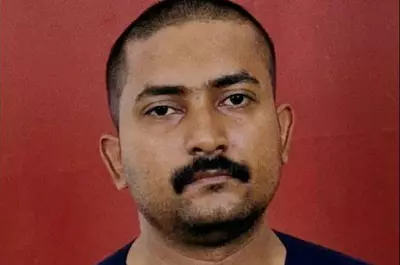-
He leaves behind a legacy that defied age, rewrote norms, and inspired millions around the globe
-
A man who started life being mocked for his frailty, Fauja Singh died as a celebrated legend—proof that it’s never too late to chase greatness
Fauja Singh, the iconic British Sikh marathoner affectionately known worldwide as the “Turbaned Tornado,” passed away at the age of 114 after being hit by a speeding SUV while walking near his ancestral village of Beas Pind in Punjab.
The incident occurred on July 14 as Singh was attempting to cross the Jalandhar-Pathankot highway. He sustained critical head injuries and succumbed shortly after being taken to hospital.
Singh, who became a global inspiration for fitness and resilience, ran marathons well past his centennial year. Prime Minister Narendra Modi led the tributes, calling Singh “an exceptional athlete with incredible determination” and a “beacon of inspiration for India’s youth.”
Within 30 hours of the fatal incident, local police arrested a 30-year-old non-resident Indian who was behind the wheel of the vehicle, aided by CCTV footage that captured the registration number of the SUV.
Khushwant Singh, his longtime biographer, mourned the loss on social media, writing: “My Turbaned Tornado is no more. Rest in peace, my dear Fauja.”
Final Bow:
-
Fauja Singh ran his last official race in 2013—a 10K event in Hong Kong—clocking a time of 1 hour, 32 minutes, and 28 seconds
-
Though official record keepers often overlooked his feats, the world didn’t.
A Journey of Grit and Glory
Born in 1911 in pre-Partition India, Singh was once dismissed as frail and weak in his early years—earning the nickname “danda” (stick) due to his spindly legs. He only began walking at the age of five. But he would defy expectations in the most extraordinary way possible, rewriting history in his later years as a marathon icon.
After enduring personal tragedies—including the loss of his wife Gian Kaur in 1992 and a son in 1994—Singh relocated to England to live with family in Ilford. In 1995, following another devastating loss of a son in a construction accident, he turned to running as a form of healing.
At the age of 89, he began training professionally under coach Harmandar Singh, launching a remarkable second act in life. He went on to complete some of the world’s toughest marathons, including London, New York, and Toronto, often clocking times many younger athletes would envy.
In 2000, he ran his first marathon in London, finishing in just under 7 hours. Over the next decade, he would participate in numerous international races, becoming a symbol of hope and strength. In 2011, he set eight age-group world records at an event in Canada, ranging from the 100 meters to 5,000 meters—all within a single day.
Though Guinness World Records refused to certify his achievements due to the absence of a birth certificate—a common issue for those born in rural India during the early 20th century—Singh remained unfazed. “If it makes some people happy to question it, it has made a lot of other people happier who believe it,” he once said.
A Humble Icon
Fauja Singh credited his longevity and athleticism to clean living and a simple vegetarian diet. “Phulka, dal, green vegetables, yogurt, and milk. No fried food, no alcohol, no smoking. I sleep early and take God’s name before bed,” he said in an interview.
Beyond the tracks, Singh was a key figure in “Sikhs in the City,” a London-based running group that raised funds for charity and fostered interfaith harmony through sport. He remained active well into his 100s, even walking 10 miles daily after retiring from competition in 2016.
Singh’s life was filled with honours and accolades. He received the British Empire Medal in 2015 for services to sport and charity. He carried the Olympic torch in both Athens and London and was sent congratulatory telegrams by Queen Elizabeth II on his 100th and 105th birthdays. He was also awarded the prestigious Ellis Island Medal of Honor in the US in 2003.









